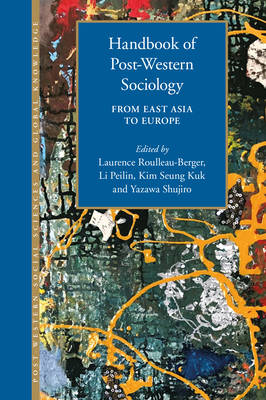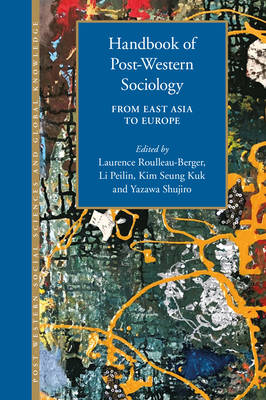
- Afhalen na 1 uur in een winkel met voorraad
- Gratis thuislevering in België vanaf € 30
- Ruim aanbod met 7 miljoen producten
- Afhalen na 1 uur in een winkel met voorraad
- Gratis thuislevering in België vanaf € 30
- Ruim aanbod met 7 miljoen producten
Zoeken
Handbook of Post-Western Sociology: From East Asia to Europe
€ 491,95
+ 983 punten
Omschrijving
Beyond hegemonic thoughts, the Post-Western sociology enables a new dialogue between East Asia (China, Japan, Korea) and Europe on common and local knowledge to consider theoretical continuities and discontinuities, to develop transnational methodological spaces, and co-produce creolized concepts. With this new paradigm in social sciences we introduce the multiplication of epistemic autonomies vis-à-vis Western hegemony and new theoretical assemblages between East-Asia and European sociologies. From this ecology of knowledge this groundbreaking contribution is to coproduce a post-Western space in a cross-pollination process where "Western" and "non-Western" knowledge do interact, articulated through cosmovisions, as well as to coproduce transnational fieldwork practices.
Specificaties
Betrokkenen
- Uitgeverij:
Inhoud
- Aantal bladzijden:
- 1054
- Taal:
- Engels
- Reeks:
- Reeksnummer:
- nr. 5
Eigenschappen
- Productcode (EAN):
- 9789004529311
- Verschijningsdatum:
- 30/03/2023
- Uitvoering:
- Hardcover
- Formaat:
- Genaaid
- Afmetingen:
- 155 mm x 235 mm

Alleen bij Standaard Boekhandel
+ 983 punten op je klantenkaart van Standaard Boekhandel
Beoordelingen
We publiceren alleen reviews die voldoen aan de voorwaarden voor reviews. Bekijk onze voorwaarden voor reviews.







